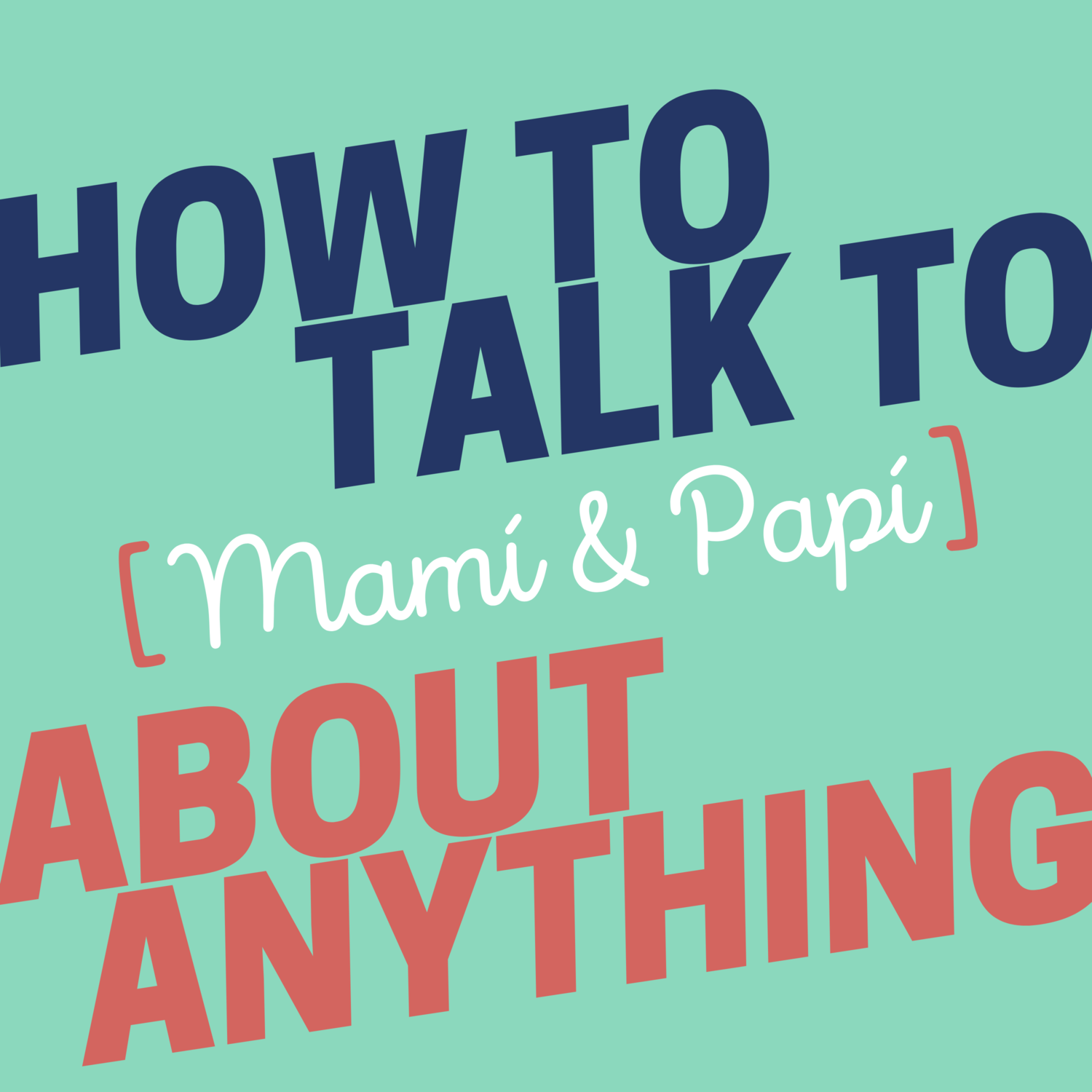What if all of your editorial choices were to serve one person?
Whether you’re building a new show or developing a single story, the first question you should ask yourself is always, “Who is my listener?” The second: “Why do they care about this story or show right now?”
Spend time with Juleyka Lantigua, and you’ll come away knowing the third question: “Am I doing everything in my power to put my listener at the heart of everything I produce?”
Juleyka Lantigua is the Founder/CEO of LWC Studios, which received a Peabody Award nomination and won a Third Coast “Director’s Prize. Third Coast is also known as “The Oscars of Audio.” A Fulbright Scholar and Tory Burch Fellow, Juleyka holds a Master’s in Journalism and an MFA in Creative Writing.
Listen to Sound Judgment Episode 13 for the full conversation with Juleyka Lantigua.
Juleyka and host Elaine Appleton Grant dissect an episode of How to Talk to [Mamí and Papí] About Anything. You’ll be fascinated by the precise choices about pre-interviews, guest curation, hosting, producing and hiring practices that go into making this show – and LWC Studios – succeed.
Takeaways from Juleyka Lantigua:
1. You are not simply delivering content to your listeners; you are creating and fostering a community—what Juleyka calls a “shared space” with listeners.
We’d all love for our listeners to feel they belong to a community we’ve created. After all, it’s one reason for returning to a show over and over, and for sharing it with friends. But communities don’t spring up out of nowhere. It takes clarity of purpose and strategy to cultivate community. While Juleyka uses several tactics to create this sense of belonging and acceptance, one is paramount: the team creates every show, including Mami and Papi, to serve their avatar, the epitome of their ideal audience.
2. Avatar? What avatar?
When Juleyka was founding LWC Studios in 2017, she spent months studying demographic data. Who was the quintessential Latina? How old was she, how many siblings did she have, where did she live, how much education had she completed, what did she want and struggle with? How would LWC serve this ideal audience member? In this way, their mythical, beloved avatar was born. Juleyka says, “Her name is Kenya and you can see her picture on our website. She is gorgeous. She's Afro-Latina. She started with us when she was 26. I created her because I needed to have someone to focus on because I knew that at 42, when I started the company, I was not my ideal listener.”
They test every new original show idea with two questions: Will Kenya listen to it? And will she share it with friends and family? “Everything we do is for Kenya,” Juleyka says.
3. The “advocacy” roles of producer and editor
That audience-centric strategy helps clarify the roles of story editor and producer. “The editor in the room is the listener's advocate,” Juleyka says.
“Your job is to make sure that the experience is not just enjoyable, but fortifying and edifying, and that it doesn’t create any confusion. The minute you confuse your listener, you’ve lost your listener.”
The producer, she feels, is the advocate for sound—in other words, making careful, often tough choices about composition, narration, pacing, and resonant endings. “Don't put a clip in there that doesn't sing right. Say it in two lines and narration, but don't waste 12 seconds if the clip is not really going to do anything.”
(Note: I always talk about where your loyalty lies as an editor, producer or host. It lies first with the listener. Sometimes people get confused and assume the primary loyalty is to the guest.)
4. Non-narrated pieces may sound easy, but they’re hard to do well.
Behind the scenes, a good producer must conduct a great pre-interview to curate not just for content but also in search of a “great talker.” The producer must then prep carefully for the actual interview. Juleyka’s producer, Virginia Lora, leans on open-ended questions. Still, she makes sure to ask for specific recurring details. For instance, she always prompts guests for the nicknames they call their parents. (That kind of information doesn’t simply occur naturally.)
Keep in mind as well that most people aren’t natural storytellers; it’s rare that someone tells their story chronologically, without getting sidetracked. That simple, straightforward, non-narrated story you hear has been carefully edited. A great non-narrated segment—much less an entirely non-narrated audio documentary—is a thing of beauty.
5. Why choose a non-narrated approach?
It’s a strategy born from the show’s reason for being: to help the millions of hyphenated, Americanized children of immigrants value their own experiences while still honoring their parents—a continual conflict. As such, the guest reflects the show’s ideal listener: Kenya, the avatar. “Once we take away these gerrymandered notions of who people are and where we belong, what you end up with is the possibility of really engaging with one another. But in order for us to facilitate that, as a production studio, we have to center the person whose story we're telling," Juleyka says. I was struck by how straightforward it is to make editorial choices once you are crystal clear about the purpose and values of your show, as Juleyka is. Given the goal of centering the listener—reflected in the ideal guest—it becomes a simple decision for the host to choose to act as facilitator, not as star. As Juleyka says, “This is not my story.”
6. Here’s one I find a lot of people haven’t given enough thought to: cultural competence.
It’s your lived experience: For a show that is largely about identity, it takes producers who share that identity to shape a show that sounds and feels authentic. The more the host and producers share that identity, the better. As Juleyka says, “It is in the seams where we lose people…. If I go as a Spanish-speaking reporter to someone’s home to do an interview, and I address them in the informal tú, I'm dead on arrival.”
7. For us, as creators, cultural competence matters. Stop dismissing the importance of your lived experience—highlight it!
It also matters when we hire or partner with others. Diversifying content teams increases perspectives and opportunities. It helps creators focus a story appropriately—and get it right. (There’s much more to discuss when we delve into cultural competence, so make sure you’ve subscribed to our newsletter, Sound Judgment.)
8. Stop rejecting yourself first
You must cultivate failure. As a podcast and film studio, LWC Studios pitches and enters awards programs constantly. The team has collected hundreds of rejection emails—and here’s the surprising thing: They keep them! “You have to think about rejection and failure as documentation that you showed up prepared to do the work,” Juleyka says. “You have to show up. And here's the thing I want to say, especially to women of color: it is not your job to decide if you're qualified. Nobody appointed you to the selection committee. So how dare you preemptively say, ‘I am not qualified?’ How dare you?”
9. Are you anxious about doom-and-gloom headlines about the podcast industry?
Juleyka isn’t, and she doesn’t think you should be either. “When we see the headlines, we have to be very aware that the headlines are only really speaking about the top 5% of podcasters.”
She takes a broader perspective. “Unfortunately, as happens in every other entertainment industry, only the big players are ever…utilized as the temperature gauges and the litmus tests for what's going on. And so had I made business and creative decisions based on the headlines, I would not be here.”
Rather than dwelling on the headlines, she advises, focus on your audience. “What we decided instead was to focus on overserving the Kenyas in the world. And that has brought us success, because we didn't worry about the barometers or the false temperatures that were being taken. We worried about how we are growing for this particular audience.”
To get useful content like this sent to your inbox, subscribe to Sound Judgment, the newsletter.


